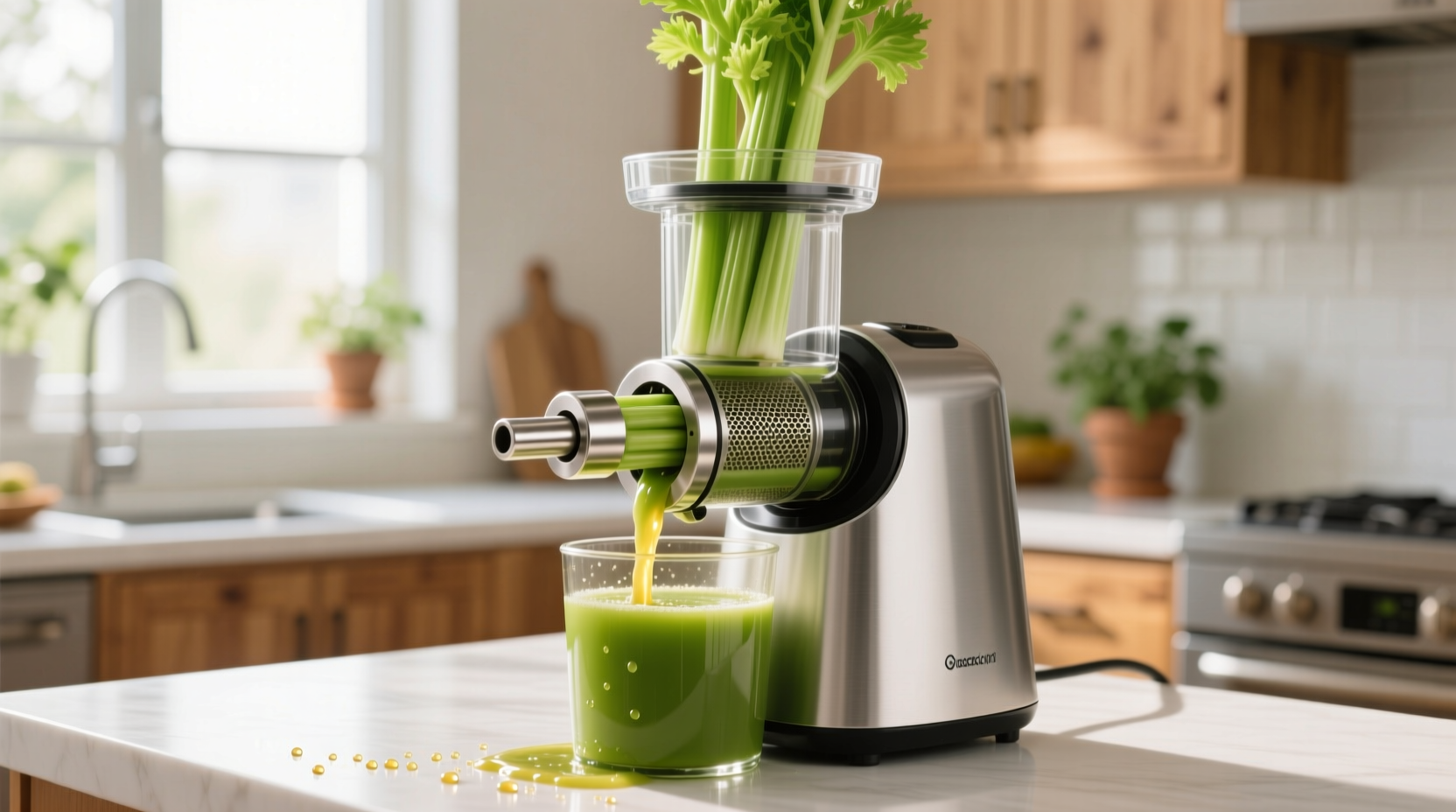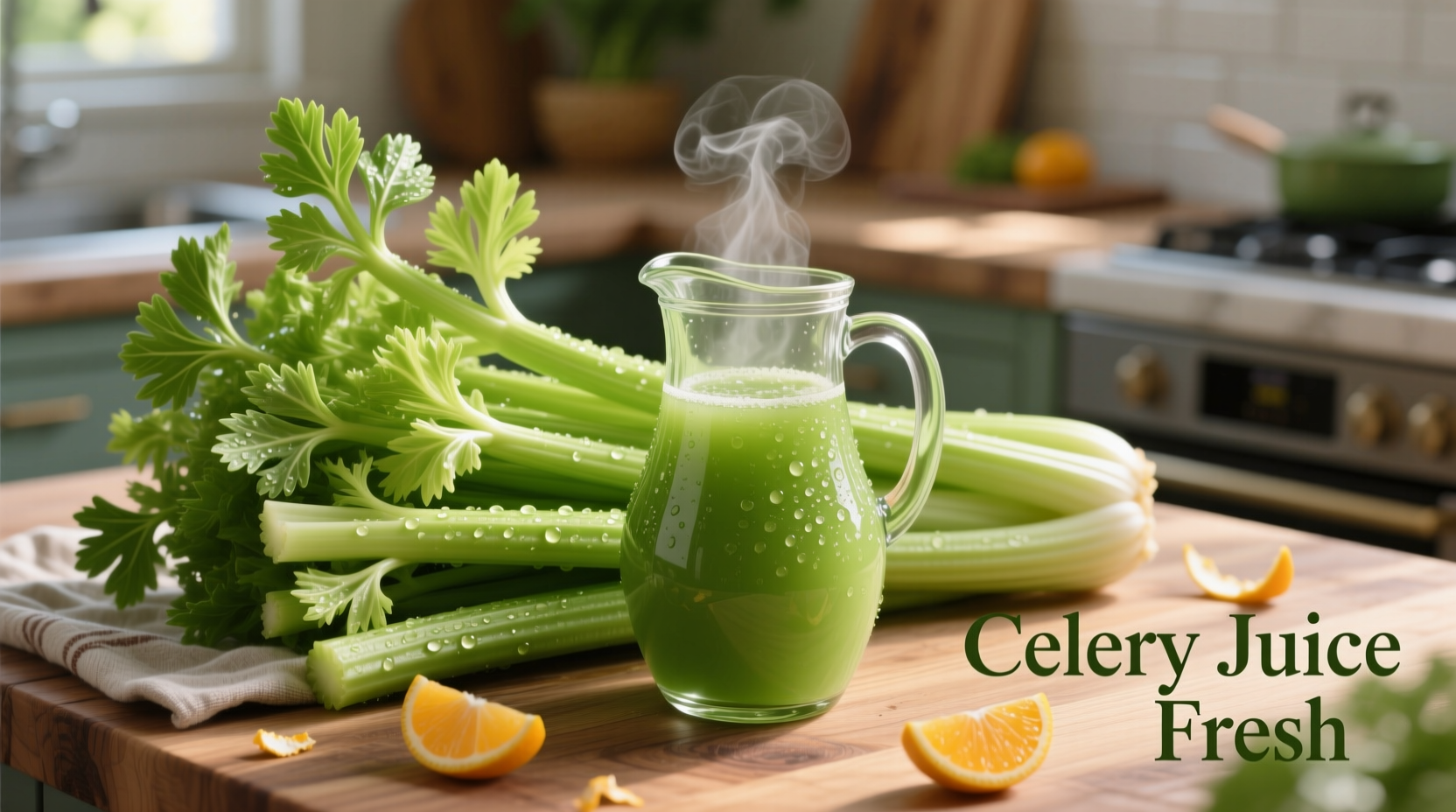Drinking celery juice provides hydration and small amounts of vitamins K and C, plus beneficial plant compounds like apigenin. While popular wellness claims about detoxification and disease reversal lack scientific backing, celery juice can be a nutritious addition to a balanced diet when consumed as part of varied vegetable intake. The most evidence-supported benefits relate to its antioxidant properties and potential blood pressure support from natural nitrates.
The Real Story Behind Celery Juice: Beyond the Hype
Over the past five years, celery juice has transformed from a niche wellness trend to a mainstream phenomenon. Social media influencers and alternative health practitioners have made bold claims about its ability to cure autoimmune diseases, reverse thyroid conditions, and detoxify the body. But what does the actual science say? Let's separate fact from fiction with evidence-based information you can trust.
How the Celery Juice Trend Evolved
The modern celery juice movement gained traction around 2017 when certain wellness influencers began promoting it as a "miracle elixir." What started as a small trend in alternative health circles exploded through social media platforms, particularly Instagram and YouTube. By 2019, celery juice had become a $200 million industry with dedicated juicing products and celebrity endorsements.
| Year | Key Development | Public Awareness Level |
|---|---|---|
| 2017 | Initial promotion by wellness influencers | Minimal (under 5% awareness) |
| 2018 | Viral social media challenges | Moderate (15-20% awareness) |
| 2019 | Celebrity endorsements; dedicated juicing products | High (40% awareness) |
| 2020-2022 | Integration into mainstream wellness routines | Very High (65%+ awareness) |
What's Actually in Celery Juice: Nutritional Reality Check
When you juice celery, you're primarily consuming water, natural sugars, and certain phytonutrients that become more bioavailable. However, you lose the valuable dietary fiber found in whole celery stalks. According to USDA FoodData Central, one cup (240ml) of fresh celery juice contains:
- Calories: 42
- Vitamin K: 73 mcg (61% of daily value)
- Vitamin C: 10 mg (11% of daily value)
- Potassium: 500 mg (14% of daily value)
- Sodium: 300 mg (13% of daily value)
- Apigenin: Significant amounts of this antioxidant compound
Compare this to whole celery: one cup of chopped celery has only 16 calories but provides 1.6 grams of fiber, which is completely removed during juicing. The juicing process concentrates certain compounds while eliminating others.
Evidence-Based Benefits: What Research Actually Shows
Several studies published in Nutrition Research Reviews and Journal of Agricultural and Food Chemistry have examined celery's bioactive compounds. The most promising research focuses on:
- Antioxidant effects: Celery contains apigenin and luteolin, which show anti-inflammatory properties in laboratory studies
- Blood pressure support: Natural nitrates in celery may help relax blood vessels, though human studies are limited
- Digestive health: The liquid form may benefit some people with digestive sensitivities
However, the National Center for Complementary and Integrative Health (NCCIH) states: "There is no scientific evidence that celery juice specifically detoxifies the body or cures chronic diseases." Your liver and kidneys naturally handle detoxification without special juices.
Practical Guide to Making High-Quality Celery Juice
If you decide to try celery juice, proper preparation makes a significant difference in both taste and potential benefits. Here's how to maximize your results:
- Select fresh, organic celery: Look for crisp, bright green stalks with no yellowing
- Wash thoroughly: Use a vegetable brush to remove soil and potential contaminants
- Use a masticating juicer: These extract more juice and preserve nutrients better than centrifugal models
- Drink immediately: Consume within 15 minutes to prevent oxidation of sensitive compounds
- Start with small amounts: Begin with 4-6 ounces daily to assess tolerance
Avoid adding lemon, ginger, or other ingredients if you're following the popular "pure celery juice" protocol, as this changes the nutritional profile significantly.

When Celery Juice Might Not Be Right For You
Celery juice isn't appropriate for everyone. Consider these important context boundaries before making it a daily habit:
- People on blood thinners: High vitamin K content may interfere with medications like warfarin
- Those with kidney issues: The concentrated potassium could be problematic for some
- Individuals with celery allergies: Affects approximately 0.4% of the population
- People managing sodium intake: Contains significant natural sodium (300mg per cup)
The Academy of Nutrition and Dietetics emphasizes that no single food or juice can detoxify your body or provide complete nutrition. A varied diet with multiple vegetables remains superior to focusing on one item.
Integrating Celery Juice Wisely Into Your Routine
Rather than viewing celery juice as a miracle cure, consider it one component of a diverse plant-rich diet. For most people, consuming whole celery provides more nutritional benefits due to its fiber content. If you enjoy celery juice, here's how to incorporate it thoughtfully:
- Limit to 8-16 ounces daily as part of your overall vegetable intake
- Don't replace whole vegetables with juice exclusively
- Consider cost-effectiveness: A single 16oz serving requires approximately 1 pound of celery
- Monitor how your body responds without expecting dramatic changes
- Continue following medical advice for any health conditions
Remember that sustainable health comes from consistent healthy habits, not isolated "superfood" solutions. The most effective approach combines various vegetables, adequate hydration, quality sleep, and appropriate physical activity.











 浙公网安备
33010002000092号
浙公网安备
33010002000092号 浙B2-20120091-4
浙B2-20120091-4